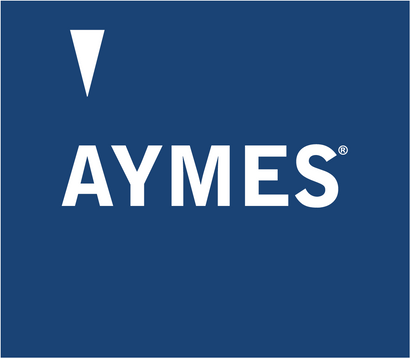Ravneet Phalora, Senior Specialist Oncology Dietitian and
Annina Whipp, Registered Dietitian
Learning Objectives
By the end of this article, you should be able to:
- Describe the nutritional impact of cancer and cancer treatment
- Have an awareness of the emerging evidence of the importance of prehabilitation nutrition
- Explain the nutritional strategies used for patients with cancer
Nutritional Challenges in Cancer
Optimal nutritional status promotes the best cancer treatment tolerance and outcomes. It therefore plays a critical role within cancer pathways. Evidence supports screening and nutritional support to commence at diagnosis, however malnutrition remains under-recognised throughout clinical practice.¹
Malnutrition
Malnutrition has been found to affect up to 75% of cancer patients and can be a consequence of the tumour itself, or as a result of treatment side-effects.² Tumour site is a determinant of malnutrition, with pancreatic, gastrointestinal and head and neck cancers having the highest prevalence.³ Chemotherapy induced nausea, vomiting, diarrhoea and dysphagia can further exacerbate malnutrition and are associated with increased morbidity and mortality.³ It is estimated that between 10-20% of cancer patients die because of malnutrition, rather than the tumour itself.¹
Sarcopenia
Sarcopenia is another nutrition-related complication, classified as a muscle disease adversely affecting existing muscle quantity, strength and function.⁴ Low muscle mass is found in more than half of patients at diagnosis, despite only 10% being classified as underweight.⁵ Low muscle mass occurs independently of body weight and is associated with cancer progression. Maintaining muscle mass via nutritional therapy can improve outcomes and should be offered alongside antineoplastic treatments.⁵
Nutritional intervention in cancer pathways
Dietetic support has an integral role within cancer pathways. There are several interventions in place to help minimise the effects of poor nutritional status.
Nutrition risk screening
Recent European Society for Clinical Nutrition and Metabolism (ESPEN) guidelines suggest that nutritional risk screening (NRS) is performed at the time of diagnosis and undertaken regularly throughout treatment to identify changes to nutritional status.¹ NRS evaluates a patient’s nutritional intake, body mass index (BMI) and weight change to evaluate the risk of malnutrition. Several validated NRS tools exist, including the Malnutrition Universal Screening Tool (MUST), however the Patient-Generated Subjective Global Assessment (PG-SGA) is widely used in clinical practice to assess the nutritional status of cancer patients.⁶ If nutritional risk is identified, an objective and quantitative assessment of nutritional intake and muscle mass should be performed.¹
Prehabilitation
ESPEN suggests that dietetic intervention at diagnosis should be offered to cancer patients in high-risk groups to optimise nutritional status.¹ Prehabilitation provides multimodal therapies (e.g., exercise, psychological and nutrition support) prior to treatment, which has been found to improve treatment outcomes and long-term health. The nutrition component of a prehabilitation programme should work alongside the exercise intervention to support muscle mass and strength maintenance.⁷ However, treatment side effects (e.g., fatigue, nausea) can significantly inhibit compliance with the programme.
Dietetic counselling
Dietetic counselling commences during the prehabilitation phase of treatment to provide an individualised treatment plan which helps patients to:
- prevent or minimise weight loss,
- maintain or increase muscle mass,/li>
- manage symptoms that are impairing oral intake,
- improve quality of life, while taking account of cultural beliefs
Dietary interventions should provide nutritional advice alongside medical management to relieve symptoms and encourage adequate intake.⁷ A food first approach is the preferred way to maintain nutritional status.¹,⁸ This is achieved through a high-protein, high-energy diet consisting of regular meals, snacks, nourishing drinks, and food fortification (e.g., the addition of full fat milk, olive oil, cream and cheese to meals). If patients are unable to meet nutritional requirements via diet, oral nutritional supplements (ONS) are used to increase energy and protein intake.¹ In patients with impaired absorption or tolerance of food, enteral nutrition (via nasogastric or gastrostomy feeding tubes) can be trialled. Parenteral nutrition (intravenous administration of nutrition) is indicated in cases of severe intestinal insufficiency.¹ For the purpose of this article, the focus is on oral nutritional support.
Nutritional support
The recommended energy requirements for cancer patients are similar to healthy individuals (25-30 kcals/kg/day).¹ There is some debate concerning what is considered an adequate protein intake. Current guidance recommends 1 to 1.5 g/kg/day of protein, however some studies have suggested a higher protein intake (>1.5 g/kg/day) can maintain or improve muscle mass.¹,⁵ Raised protein requirements alongside reduced oral intake secondary to treatment side-effects, emphasises the need for nutrition support from dietitians
Oral nutritional supplements
Oral nutritional supplements are a range of high-energy drinks which are indicated if patients meet less than 50% of their nutritional requirements for more than one week.¹
To enhance ONS compliance, it is important that the following are considered:
- Low volume supplements (e.g., compact versions, or shot style supplements) are useful for patients who are fluid restricted, have early satiety or are experiencing ongoing nausea.
- High-protein ONS (≥ 20% energy from protein) are an effective way of achieving protein requirements for patients with limited appetite or nausea.⁹,¹⁰
- Fibre-free supplements can be beneficial for patients with bowel disturbances (e.g., diarrhoea). Similarly, fibre containing supplements can work alongside medication in the management of constipation.
- Dysphagia secondary to tumour site (e.g., oesophageal) or treatment side-effects (e.g., surgery) make it difficult to maintain adequate oral intake from food. ONS can be an important source of nutrition in this patient group and should be offered during the prehabilitation phase.
- Nutrition is one aspect of a patient’s treatment that they may feel they are able to control, therefore dietitians need to be empathetic to patients’ beliefs when exploring appropriate nutrition support. ONS suitable for vegan, halal and kosher diets are now available to be prescribed. This allows for a patient-centred approach to be taken when prescribing ONS.¹⁰
Conclusion
There is a high prevalence of malnutrition among cancer patients which increases the risk of morbidity and mortality.²,³ There is strong clinical evidence that specialist dietetic input as part of a prehabilitation programme, and throughout a patient's cancer journey, can optimise nutritional status and help to improve long-term patient outcomes.
- ◄References:
-
- Muscaritoli M, et al. (2021). ESPEN practical guideline: Clinical Nutrition in cancer. Clin Nutr; 40(5): 2898–2913.
- Sanz E, et al. (2019). Nutritional risk and malnutrition rates at diagnosis of cancer in patients treated in outpatient settings: Early intervention protocol. Nutr; 57: 148-153.
- Bossi P, et al. (2021). The Spectrum of Malnutrition/Cachexia/Sarcopenia in Oncology According to Different Cancer Types and Settings: A Narrative Review. Nutrients; 13(6): 1980.
- Cruz-Jentoft A, et al. (2019). Sarcopenia: revised European consensus on definition and diagnosis. Age Ageing; 48(1): 16-31.
- Prado CM, Purcell SA, Laviano A (2020). Nutrition interventions to treat low muscle mass in cancer., J. Cachexia Sarcopenia Muscle; 11(2): 366-380.
- Reber E, et al. (2021). Nutritional Risk Screening in Cancer Patients. Front. nutr ; 8.
- Gillis C, et al. (2021). Nutrition Care Process Model Approach to Surgical Prehabilitation in Oncology. Front. nutr; 8.
- National Institute of Health and Care Excellence (NICE) (2017). Nutrition Support for Adults Oral Nutrition Support, Enteral Tube Feeding and Parenteral Nutrition: Clinical guideline. Accessed online: www.nice.org.uk/guidance/cg32/resources/nutrition-support-for-adults-oral-nutrition-support-enteral-tube-feeding-and-parenteral-nutrition-pdf-975383198917 (Aug 2021).
- European Commission. (2021) Nutrition Claims. Accessed online: https://ec.europa.eu/food/safety/labelling-and-nutrition/ nutrition-and-health-claims/nutrition-claims_en (Aug 2021).
- BNF: British National Formulary (2020). Nutritional Supplements. Accessed online: https://bnf.nice.org.uk/borderline-substance-taxonomy/nutritional-supplements-non-disease-specific.html (Aug 2021).


